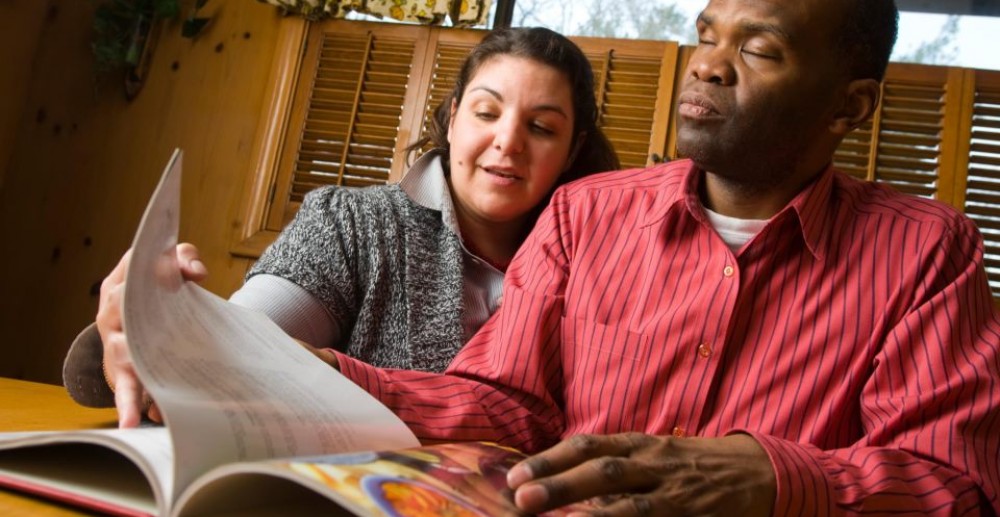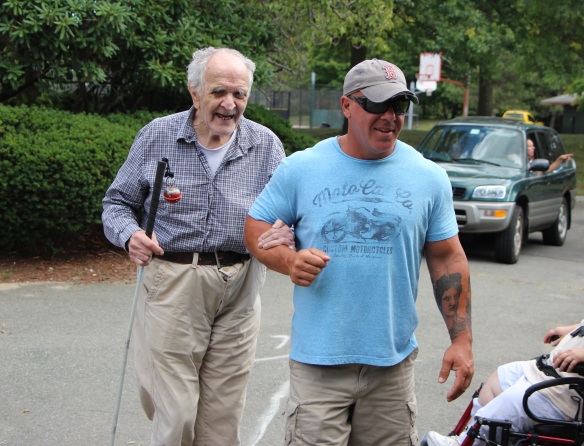Reprinted with permission.
My name is Randolph B. (Randy) Cohen. I teach finance and entrepreneurship at Harvard Business School, and I am a partner in ExSight Ventures, a small money management firm that invests solely in technologies and therapies related to vision and blindness. I created this site to share my experiences with vision loss.
One of my hopes for the site is that I and others can share practical advice with folks who, like me, are living with low vision. I have received many valuable tips over the years from others with vision problems, and I’ve figured out a few things on my own, and I’d like to use this forum to share such ideas more widely. Many of the most helpful pieces of advice I have relate to products, high and low-tech both, that I use to be more efficient at getting around and getting things done.
In addition to technology, I’ll share thoughts on other choices one can make to minimize the ways low vision affects your life. Plus I have a lot of stories about what it’s like living with this, some of which may help fellow sufferers feel less alone, some of which may give their friends and loved ones a sense of the experience, and some of which are just embarrassing enough to be pretty funny. And I’ll feel free to ramble on about other subjects if I choose! With luck I’ll also persuade friends and colleagues to pitch in with their thoughts and advice.
“Low vision” covers people in a myriad of different situations, all I can do is talk about what works for me and add the occasional comment about tweaks that might be valuable for people whose vision is poor in ways different from mine. But I wanted to put this up because low vision is incredibly common but I haven’t seen that much written about managing it. Most people who address sight disorders are addressing the challenges of the totally or almost-totally blind, and of course those folks are the most in need of assistance, so that’s fine. But hopefully I can help some people in weird in-between situations like mine.
Some of the ideas here will be helpful to people who suffer total blindness, but in many cases people in that situation will find other products and services more helpful.
It may be useful for some users to know the perspective I am coming from. I suffer from Retinitis Pigmentosa, a degenerative condition of the retina that is closely related to the more common ailment known as macular degeneration. Many RP sufferers have 20-20 vision but with very narrow visual fields (“tunnel vision”). My situation is quite different. I have substantially reduced visual fields, but not really a “tunnel.” In addition I have extremely poor visual acuity and high light sensitivity. As a result I can see things better on a computer screen than in “real life,” but only if the computer is set to “inverted” colors, i.e. black background with white text, or some similar high-contrast scheme. Once again, the solutions I personally recommend will be of most help to those whose visual impairments are most similar to mine, though some may be helpful to a wide range of users.
A note on nomenclature. I will use terms like “low vision,” “partially sighted,” “legally blind,” etc. as seems appropriate to what I’m writing about, and I’ll make little effort to distinguish between these terms. I will also use the self-mocking term “dangerous vision” to describe what I deal with, as seeing the way I do can be physically dangerous, to myself and to those around me, but also because of the positive sense of living dangerously — my eyesight makes life an adventure. And of course the name is an homage to Dangerous Visions, the seminal fiction collection edited by the great Harlan Ellison.
Read more from Dangerous Vision.
 Randolph B. (Randy) Cohen is a Senior Lecturer in the Finance Unit at Harvard Business School.
Randolph B. (Randy) Cohen is a Senior Lecturer in the Finance Unit at Harvard Business School.
Cohen will teach FIN 1 and FIELD 3 at HBS this year; he will also be teaching Investment Management as a visitor at MIT Sloan School of Management. He has previously held positions as Associate Professor at HBS and Visiting Associate Professor at MIT Sloan.
Cohen’s main research focus is the interface between the actions of institutional investors and price levels in the stock market. Cohen has studied the differential reactions of institutions and individuals to news about firms and the economy, as well as the effect of institutional trading on stock prices. He also has researched the identification of top investment managers and the prediction of manager performance, as well as studying the market for municipal securities.
In addition to his academic work, Cohen has helped to start and grow a number of investment management firms, and has served as a consultant to many others.
Cohen holds an AB in mathematics from Harvard College and a PhD in finance from the University of Chicago.



![A photo of a smartphone in the LaunchGuide location, with a sign reading "BRAILLE TRAIL START" pointing to the phone in the wire guides and a caption on the photo that reads "[smartphone:] Welcome to the Dennis Braille Trail"](https://mabvi.files.wordpress.com/2015/12/launchguide.jpg?w=584)









